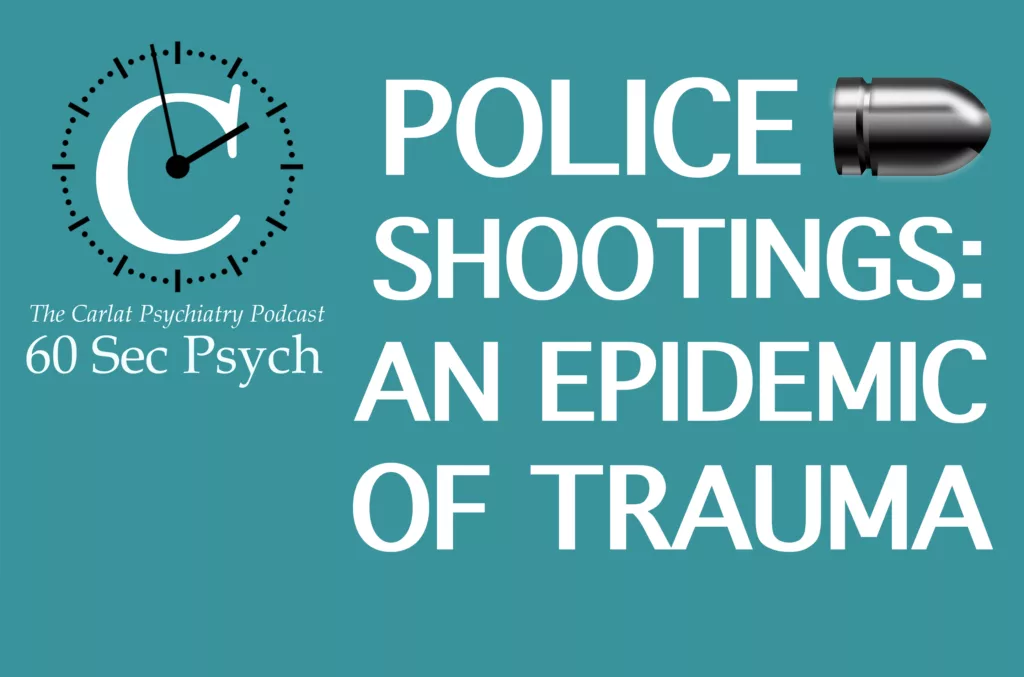The killing of George Floyd has sparked nationwide outrage, but what does it mean for your patients? We found a poignant answer in a 2018 study in the Lancet. Jacob Bor and colleagues poured through a national survey of 100,000 randomly selected adults to find out how police shootings affected mental health. [Link]
Published On: 6/6/2020
Duration: 2 minutes, 11 seconds
Transcript:
The killing of George Floyd has sparked nationwide outrage, but what does it mean for your patients? We found a poignant answer in a 2018 study in the Lancet.
Jacob Bor and colleagues poured through a national survey of 100,000 randomly selected adults to find out how police shootings affected mental health.
They focused on a single question in the survey: “Thinking about your mental health, which includes stress, depression, and problems with emotions, for how many days during the past 30 days was your mental health not good?”
The answers were mapped by whether the respondent lived in a state where an unarmed black person had been killed by police in the past 3 months. When black and white respondents were compared, a stark pattern emerged.
The shootings had no impact on the mental health of whites, but for black respondents those same shootings were associated with a near doubling of poor mental health days. The effect was stronger in the first 2 months after the shooting, and was not seen after armed victims were killed by police.
The finding doesn’t prove causation. But it suggests we need to pay special attention to the spill-over effect of the current crisis on our African American patients. And the crisis is more than current: 300 black people are killed at the hands of police each year ─ a quarter of them were unarmed. Each of these deaths spreads through the black community through social media, word of mouth, and local news. It undermines their trust in institutions, creates waves of community grief, activates prior trauma, and raises fears for their own safety.
Just as the images of 911 caused vicarious trauma in people who were overexposed to it, these deaths are probably causing similar reactions, and the effect cuts much deeper in blacks than in whites.
Thanks to Kara Raiteri our summer research intern for work on this episode.
Got feedback? Take the podcast survey.


_-The-Breakthrough-Antipsychotic-That-Could-Change-Everything.webp?t=1729528747)



